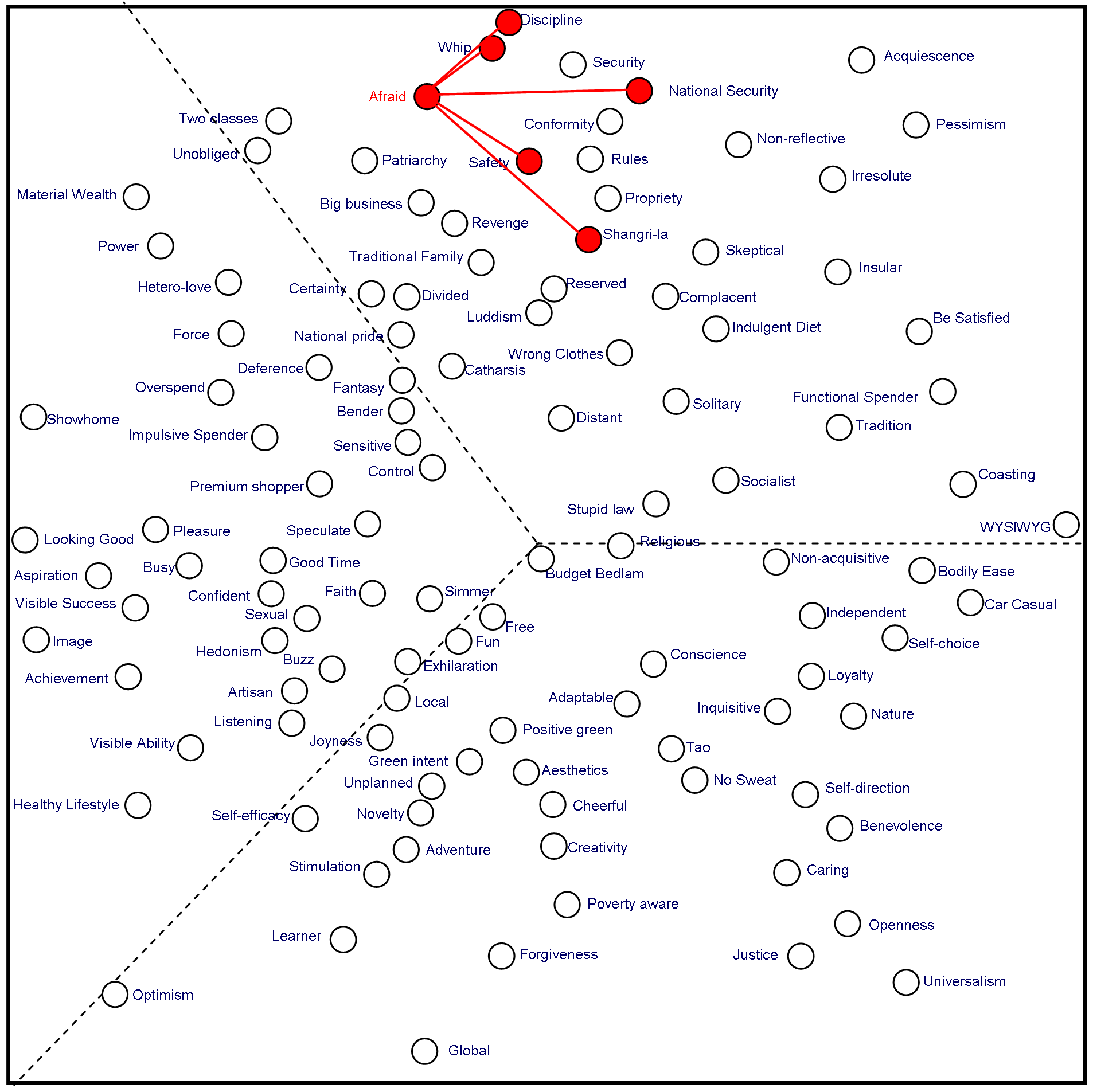

AFRAID
 |
I believe there is too much violence and lawlessness in society. I’m afraid to walk alone in my neighbourhood at night.
The ‘Afraid’ Attribute is firmly rooted in the Settler psyche. Settlers are 40% more likely than the national average to agree that the descriptor is ‘Very Much Like Me’ or ‘Like Me’.
It is important to realize that this belief is not necessarily based on empirical evidence; espousers may not live in an area that has a high crime rate. The perception that it is ‘dangerous to walk alone in their neighbourhood at night’ is driven by a set of Attributes that leads espousers to perceive danger in many areas of life.
Their perception is driven by a values system that identifies danger in the everyday – from the neighbourhood teenagers, to society disintegrating, to organized violence at a national and international level.
Some mainstream news media and ‘infotainment’ social media outlets (websites, blogs, Twitter and so on) thrive on feeding and reinforcing these perceptions.
Their fears are a constant backdrop to their internal imaginations. This is a classic expression of the ‘fear of the other’, a feeling that they are powerless to effect positive changes in their own lives and that their lives are at the mercy of random, irrational and malevolent forces beyond their control.
As a result, their desire to eliminate these forces often leads to sanctions that are driven by fear – they want harsh punishment for criminals (including whipping), strict discipline for children, ‘bring back capital punishment’.
They believe that other people should be like them – ‘normal’ - following the rules and conforming to the average. Behaviours that are outside ‘the normal’ worry them. Their own neighbourhoods aren’t normal anymore and this worries them. If the neighbourhood or community has declined in status or changed in ethnic or demographic composition this is something the media will often focus on as a ‘reason’ for their fear. What is interesting about this fear is that it can also be driven by changes that take the neighbourhood into a higher status, the gentrification process found in areas being regenerated as communities go through the cycle of decline and rise. Older espousers of this Attribute do not welcome ‘newcomers’ into ‘their’ neighbourhoods and find reason after reason to feed their fear: they drive too fast, their children are ill-disciplined and disrespectful, they know nothing of the history of the area and aren’t involved the way ‘we were’ and so on. Their real desire is for a return to the past – but a romanticised version of the past where everything is safe and ‘nice’.
Their fear leads to harsh judgements - and rather than being a force for creating better neighbourhoods by confronting social problems they become a force of social disintegration with their criticisms and withdrawal from community initiatives. Local authorities and social marketing initiatives need to recognize this Attribute and work to alleviate these fears before attempting any engagement strategies for community change.
Using AfraidDemographic Skews: 1) Over indexed: Female, over 65, down market 2) Under indexed: Male, under 35, up market Afraid espousers also espouse other attributes. The top five most highly correlated attributes of Afraid espousers are, in order of the strength of relationship: 1) Safety In total those who espouse Afraid also over-index significantly on 48 other Attributes. |
|
If "Afraid" (or the associated attributes) are important to you and you would like to delve more deeply, contact us at mail@cultdyn.co.uk
